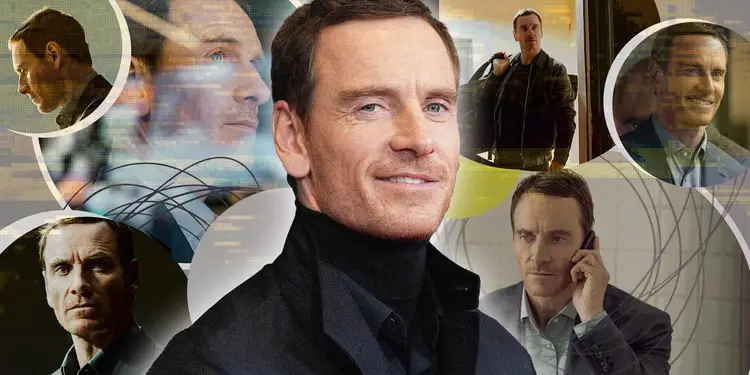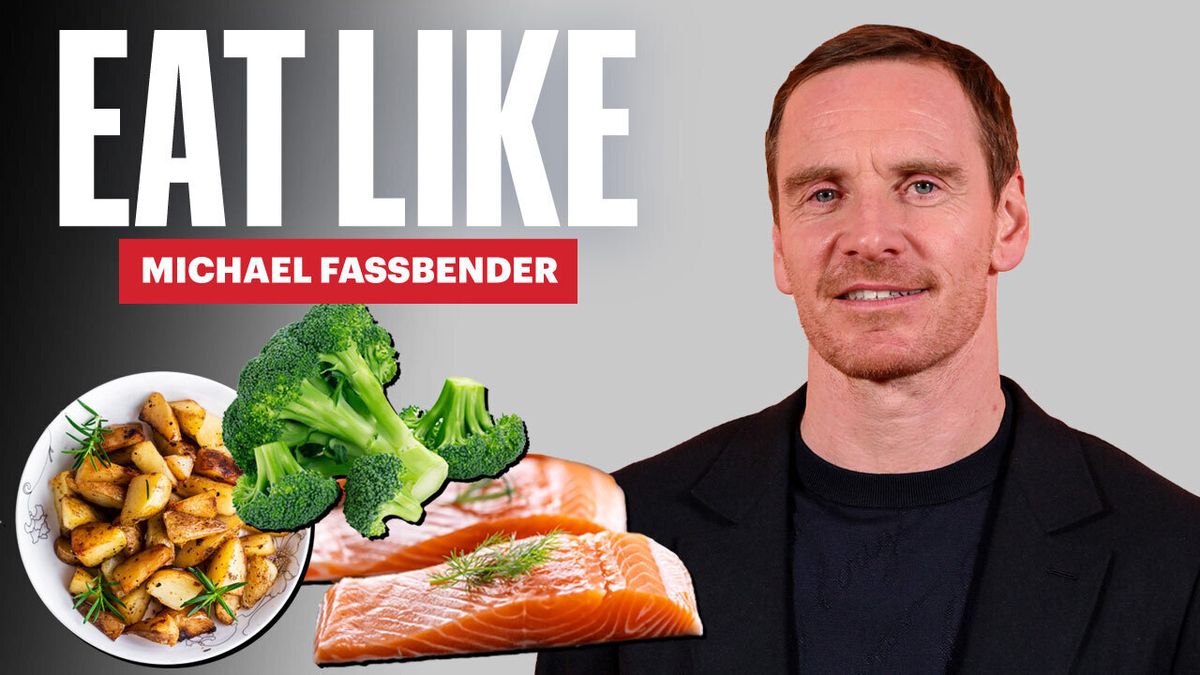Michael Fassbender Wants You To Question Everything

In 2001, Michael Fassbender burst onto the scene with a role in one of the greatest TV series ever made. In "Band of Brothers," he portrayed Technical Sergeant Burton Christenson, a minor but memorable character, appearing in seven episodes of the acclaimed Emmy-winning show. This opportunity allowed him to collaborate with famed producers Steven Spielberg and Tom Hanks, setting the stage for what would evolve into a remarkable acting career that would define his generation.

After a 23-year break from television, Fassbender returns in Paramount+ with Showtime's series The Agency. In this show, the 47-year-old actor plays a spy known as "Martian," who faces the challenge of readjusting to life after being abruptly pulled from a deep undercover mission that lasted six years. This role demands not only physical agility akin to that of an action hero but also the ability to portray the emotional toll of extremely tense situations – high-stakes scenarios that could be perilous or even life-altering.
Given his impressive track record, which features two Oscar nominations (for *12 Years a Slave* and *Steve Jobs*), starring in a major superhero series (playing Magneto in four *X-Men* movies), and collaborating with some of today's top directors (like Quentin Tarantino, Steven Soderbergh, and Steve McQueen), it's natural to question how Michael Fassbender's career has evolved since his time on *Band of Brothers*. What insights has he gained over the years that he might not have had at the start of his journey?
"My homework is pretty much unchanged. I invest a lot of time in the material. I might read a script 200 times, and this time I had ten scripts to go through," he explains. Dressed in a black jacket over a white shirt, he has a surprisingly friendly demeanor considering the intensity of this role—and most of his others. Soon after we connected on Zoom, he gave me an enthusiastic thumbs up along with a big smile. He seems eager to discuss almost anything (at one point, he even mimicked bending metal with his hands like Magneto). "By spending countless hours on this daily, I constantly reflect on the character," he adds. "In this case, how much of a sociopath is this guy? Just working through the script repeatedly helps with that understanding."
As he goes on, he suddenly recalls a different response—he's got a family now.
"When I first began my career, work was my top priority," he shares. "I continue to enjoy my job; it truly is my passion. I'm thankful to have a job that I genuinely love, and I still put my all into it. However, now that I have a family, they are my main priority, and work takes a backseat."

This creates a fascinating contrast for an actor portraying a character shaped by three significant aspects of his life: his job, a secret relationship from his time spent undercover, and his bond with his daughter, whom he rarely saw while he was away. Fassbender, who is married to Oscar-winning actress Alicia Vikander and has two sons, seems to manage this balance in his own life more effectively than his character does—and he has even discovered ways to make room for new interests.
Before making his comeback last fall in David Fincher's *The Killer* and Taika Waititi's *Next Goal Wins*, Fassbender took a break from acting to chase a career in auto racing, debuting in the 2020 European Le Mans Series. He’s been staying quite busy with various projects and seems to have found a way to manage everything effectively. Coming up next—though it was actually filmed before *The Agency*—Fassbender will take on another spy role as he collaborates once again with Soderbergh for the highly anticipated *Black Bag*, set for release in 2025.
In a conversation with Men's Health, Fassbender talked about how he relates to and unwinds from the demanding characters he plays. He also shared insights on his physical training and elaborated on his work with The Agency and Martian.
Check out The Agency here.
MEN'S HEALTH: You've taken on a range of high-energy, suspenseful, spy characters lately, including in films like The Killer, The Agency, and the upcoming Black Bag. What do you find so appealing about these types of roles?
MF: It just kind of fell into place. When I got the chance to collaborate with Steven Soderbergh again through Black Bag, I couldn't pass it up. It just so happens that this project is in the spy genre.
What caught my attention about Martian in The Agency was the kind of person who chooses this profession and what their life looks like over a 20-year span. Who is this individual at the start of their journey, and how do they change by the end? I found both the setting and the character intriguing, especially since he gets drawn back into this structured environment while dealing with a crisis. I have a preference for characters who experience some level of internal conflict because that's when compelling drama unfolds. These multifaceted characters pique my interest as I explore their motivations, what drives them, and the nature of their relationships. I enjoy creating stories that leave viewers pondering and questioning everything from their behavior to the dynamics of human interaction, whether in the theater or at home after an episode.

MH: This role requires a lot of physical and mental effort, as well as the show itself. What kind of preparation did you undertake? You’re constantly moving, and you also share some deeply intense moments and interactions with your fellow actors.
MF: That’s a great question. I had just finished working on Black Bag and took a week off before diving straight into this project, which meant I worked nonstop for seven months. To manage it, I established a strict routine. I would wake up early, exercise, take ice baths, and then go to hair and makeup to kick off the day. This regimen was really beneficial for my mental state. For me, training—whether it's participating in a sport or hitting the gym—is essential for maintaining a positive mindset and emotional stability. Over the past seven or eight years, this has become increasingly important, and it certainly helped me connect with my character by providing focus and stability.
I would take 20 minutes each morning to meditate in the car while commuting to work. After that, I would hit the gym, take an ice bath, and kick off my day.
MH: After completing several demanding projects in a row, do you have any personal routines or methods for unwinding and signaling that it’s time to move on and wrap things up?
MF: Cheers! [LAUGHS] No, I’m really looking forward to spending time with my family; my parents are visiting after the screening. I’ll be hanging out with them tonight, enjoying time with Alicia and the kids, and just savoring some quality moments together. I’m also excited to get back to cooking. I didn’t have much time for that during filming since I was busy memorizing lines and heading to work early. So, I’m looking forward to relaxing at home, having a few glasses of wine, and completely unplugging from work.
I’m looking forward to getting outside, trying out some tests, karting, and getting back behind the wheel.
MH: The character Martian in The Agency is built on three main aspects of his life: his job, a hidden romance, and his role as a father. How much did these elements influence your decision to take on this role?

MF: Definitely, this is a significant issue because it's really at the heart of the matter. Ultimately, he needs to rebuild his relationship with his daughter. He's lost a lot of precious time with her. Over the last six years, they likely met only occasionally, maybe catching up in places like Cape Town during summer breaks for just a couple of weeks here and there. He has missed her entire teenage years, and now she has grown into a young woman, a time he can never reclaim.
He's making an effort to reconnect with her, but at the same time, he's used to having things his own way, which creates some tension since she sometimes stands in his way. Despite this, he's doing his best to reach out to her because he believes that nurturing that bond is crucial for his own peace and for his relationship with Samia (Jodie Turner-Smith). In his attempts to preserve his connection with Samia, he might end up jeopardizing his relationship with his daughter and other important aspects of his life.
MH: Your current selection of characters consists of genuine, relatable heroes and anti-heroes, while you've previously portrayed superpowered figures like Magneto. How do you approach these different roles?
MF: My focus is always on uncovering the truth in any role I take on, and figuring out how it connects to the character I’m portraying. Even when playing someone like Magneto, who exists in a fantastical setting, it's important to engage the audience while also finding a realistic, relatable aspect to the character. Despite wearing a helmet and cape, flying around and manipulating metal, there's a fundamental part of the story that revolves around a person who feels like an outcast and has been hurt by that experience. Their complex relationship with humanity is shaped by everything that has happened to them. These elements are deeply relatable and human, allowing me to find something tangible within an imaginary universe.
The same goes for The Agency. It’s all about grasping what this character represents and what drives their actions. There isn’t any supernatural aspect, which is one of the reasons this series appealed to me so much—it's rooted in reality and feels very realistic. That foundation was already established, so the focus shifted to uncovering the essence of this character. When is he being honest? When is he deceiving others? Will viewers find themselves questioning these things? I believe he has blended both aspects so seamlessly that he struggles to distinguish one from the other.





















































